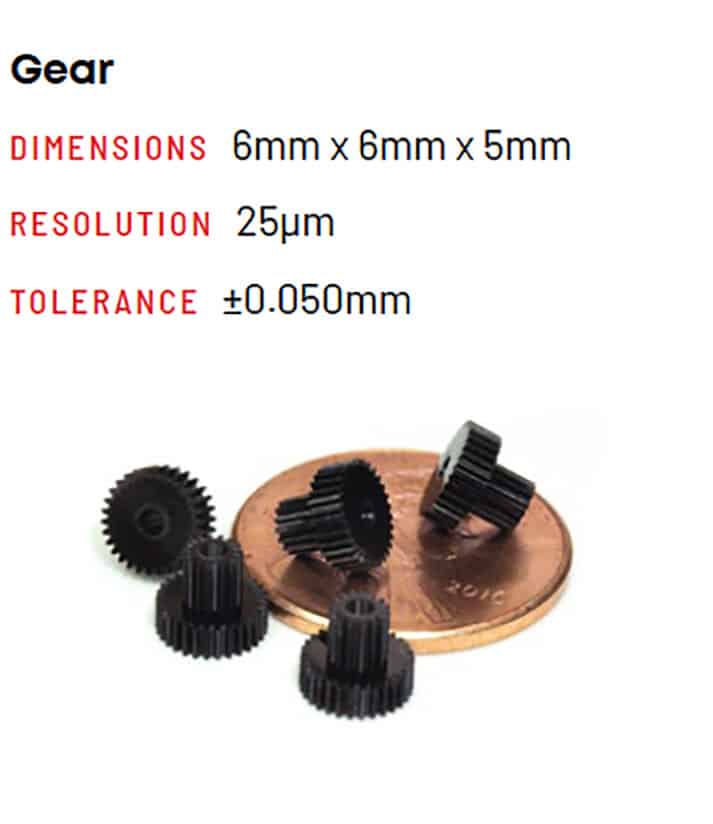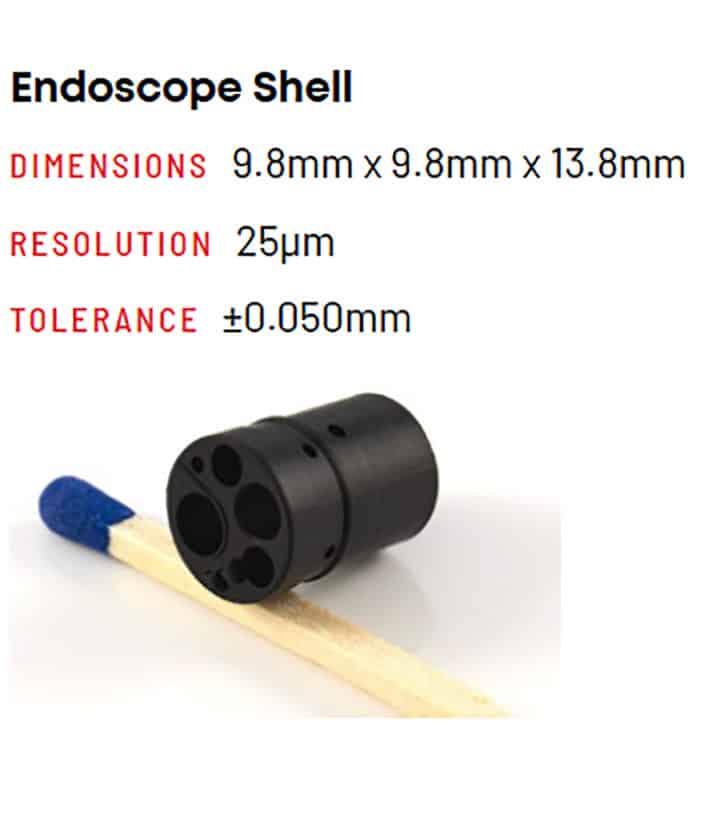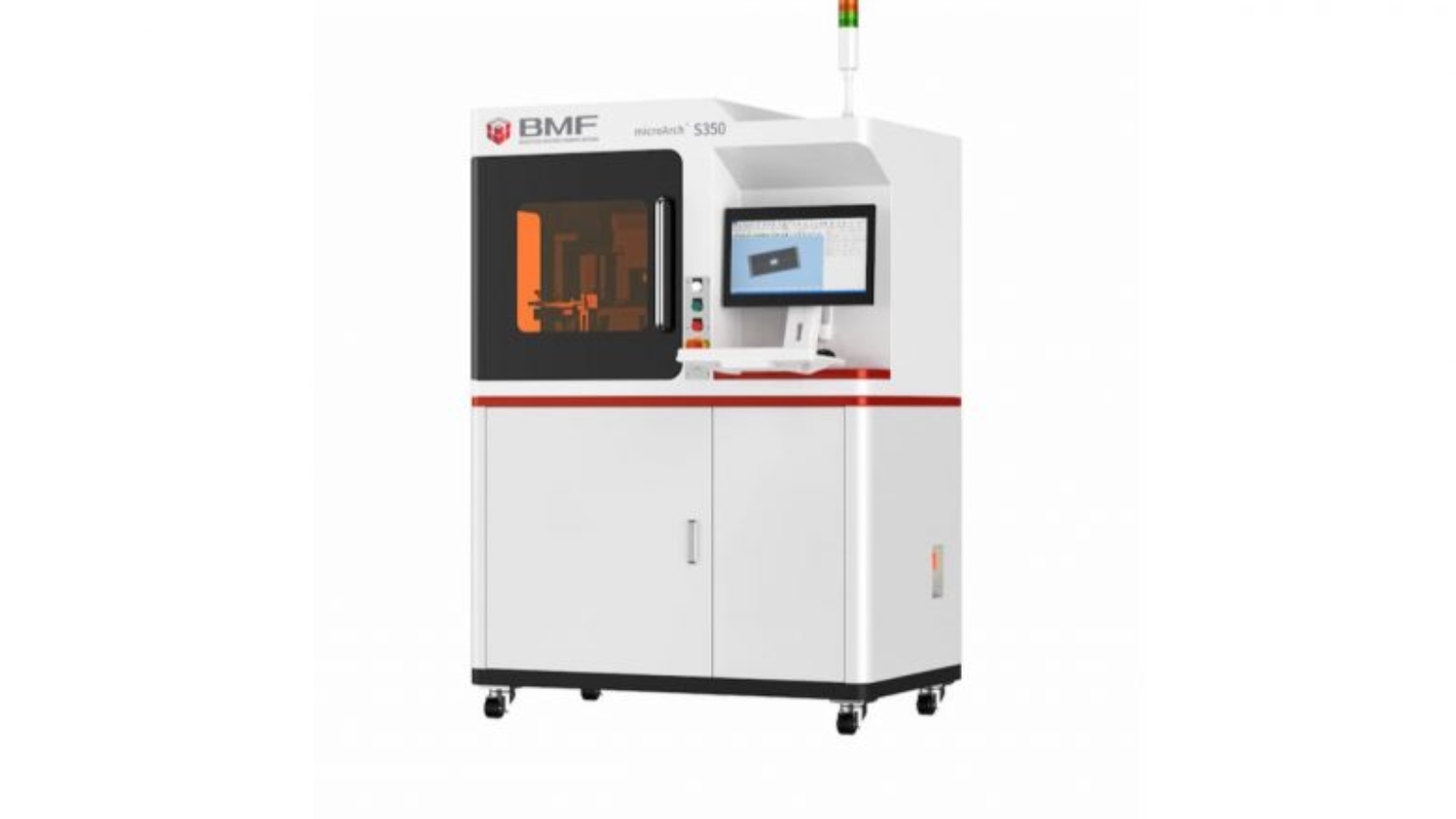Boston Micro Fabrication (BMF), a pioneer in microscale 3D printing systems, unveiled the new microArch S350, the latest addition to its roster of industrial-grade micro-precision 3D printers. This next-generation version of BMF’s 25μm-resolution system offers the highest throughput in the company’s portfolio, combining high part quality with the print speed required for end-part production.
 “BMF has become the industry leader for printing small and micro-sized parts requiring high resolution, accuracy and precision in the 2μm and 10μm resolution spaces. Now, we’re bringing that experience to an even wider range of end-use applications at the 25μm level,” said John Kawola, CEO of BMF. “While this printer is geared more toward industrial customers that need faster throughput, greater volume, and more automation, the result is still best-in-class part quality compared to other DLP platforms and we cannot wait to see what our customers accomplish with it.”
“BMF has become the industry leader for printing small and micro-sized parts requiring high resolution, accuracy and precision in the 2μm and 10μm resolution spaces. Now, we’re bringing that experience to an even wider range of end-use applications at the 25μm level,” said John Kawola, CEO of BMF. “While this printer is geared more toward industrial customers that need faster throughput, greater volume, and more automation, the result is still best-in-class part quality compared to other DLP platforms and we cannot wait to see what our customers accomplish with it.”
The microArch S350 is built upon BMF’s patented Projection Micro Stereolithography (PμSL) technology, a technique that allows for rapid photopolymerization of layers of liquid polymer using a flash of UV light at micro-scale resolution. With a larger build volume (100 x 100 x 50mm) and fewer projection zones to improve print speed, the printer can be used in a production environment or labs to print both micro-scale parts with high-resolution features or small parts requiring high accuracy or precision. A new automated lateral membrane shift enables easier part removal or integration with a robotic arm, resulting in increased automation and ease of use for end-part production. Additional capabilities include automated resin fill and adjustment, a laser displacement sensor, and an advanced roller that spreads layers at greater speed.
Manufacturing on Demand
The microArch S350 is compatible with a growing portfolio of engineering and ceramic resins
suitable for end-use parts, including two new materials. One is BMF MED powered by 3D Systems, a rigid amber material for applications requiring biocompatibility, translucency and/or thermal resistance. It provides parts with crisp details, that can be sterilized and tested at high temperatures, over 100 °C. The second is Loctite 3D 3955, a high-performance halogen-free flame retardant UL94-V0 high modulus photopolymer resin. Printable at 60°C.
 Since BMF launched its microArch system globally in February 2020, more than 200 customer locations around the world have installed the company’s micro 3D printers for prototyping, research and development, and end-use production. Industries that are driven to miniaturize, such as electronics, optics/photonics, medical devices, microfluidics and life sciences, are finally able to take advantage of additive manufacturing and innovate in ways that were never before possible.
Since BMF launched its microArch system globally in February 2020, more than 200 customer locations around the world have installed the company’s micro 3D printers for prototyping, research and development, and end-use production. Industries that are driven to miniaturize, such as electronics, optics/photonics, medical devices, microfluidics and life sciences, are finally able to take advantage of additive manufacturing and innovate in ways that were never before possible.
“As one of BMF’s first customers, we’ve been excited by the performance of their high-resolution 3D printing solution. Most recently we have been evaluating BMF’s first-generation microArch P150, and it has delivered accuracy that is not attainable by any other system we have used within our additive lab. With its high part quality and throughput suitable for production, as well as the ability to print a wider variety of materials, the microArch S350 has become a critical tool in printing high-resolution connectors,” said Xiaoming Luo, Principal 3D Printing Engineer, Aerospace, Defense, and Marine (AD&M) at TE Connectivity. “We feel the microArch S350 gives TE the ability to produce very high-resolution connectors for our customers.”
The microArch S350, BMF MED and LOCTITE 3955 will be available to ship in Q1 2023. They will be on display at the upcoming Formnext show in Frankfurt.
You might also like:
* This article is reprinted from 3D Printing Media Network. If you are involved in infringement, please contact us to delete it.
Author: 3D Printing Media Network


Leave A Comment